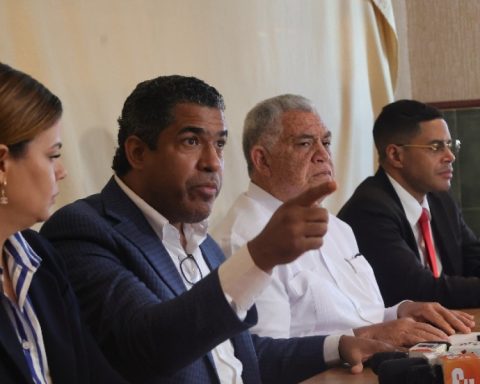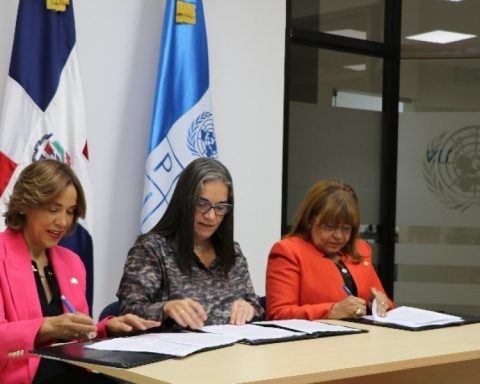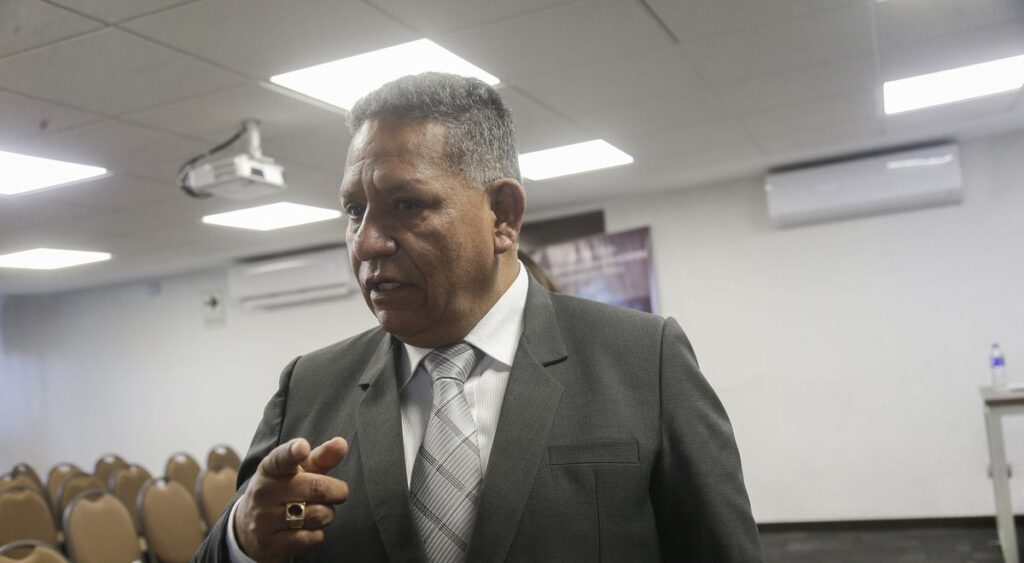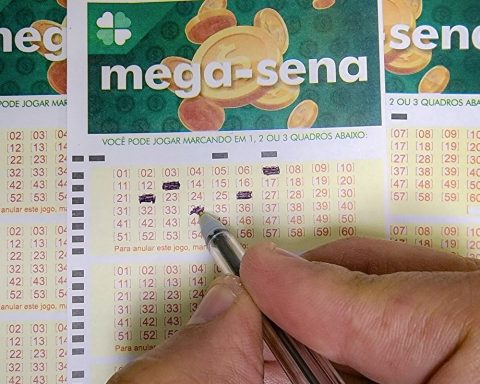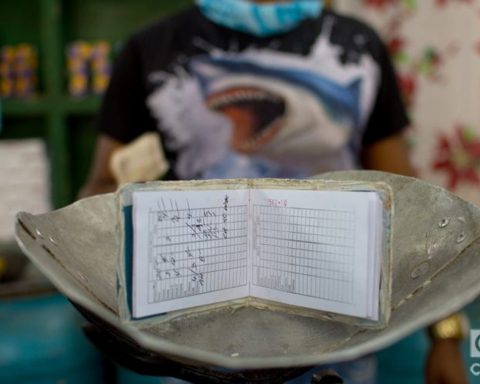TransUnion (NYSE: TRU), a global provider of information solutions, published a new global study. “Expanding access to credit: A deeper perspective on consumers without credit products and with little credit activity”.
The comprehensive study included an analysis of the credit behavior of consumers in Canada, Colombia, the United States, Hong Kong, India and South Africa. As well as a global online survey of more than 11,100 consumers in the Dominican Republic, Brazil, Canada, Colombia, the United States and the Philippines.
Most consumers are looking for new credit products
The results of the global survey indicate that despite the lack of credit experience of consumers without credit products and with little credit activity. These consumers understand the benefits and risks of credit and want to stay in control of their finances.
In Dominican Republic, a significant majority of consumersboth of consumers without credit products (72%) and consumers with little credit activity (69%), you expect your need for credit to increase in the next three to five years.
However, just over half of consumers without credit products (53%) and 47% of consumers with little credit activity stated that the reason they did not take more credit, or no credit in the case of consumers without credit products, was not wanting to get into debt. This still means that the majority of consumers, particularly within the group of consumers with little credit activity, are looking for get more access to credit and take advantage of credit for your financial needs.
The concern for lose control of your finances it was also one of the reasons indicated by 34% of consumers with little credit activity for not asking for more credit. Worldwide, the desire to avoid debt was the most cited reason for not wanting more credit, with the exception of Canada.
Around the world, respondents cited planning to apply for credits in 2022 to varying degrees. In the Dominican Republic, 52% of consumers without credit products plan to request a loan. And 58% of consumers with low credit activity- Finding a way to meet the needs of this large consumer population. As long as the risk is managed prudently, it represents an important growth opportunity for the entities.
Can read: Credit to manufacturing reported reached RD$115,112 million
Consumers want more credit education and better credit offers
The survey results also indicated that 45% of credit-poor consumers in the Dominican Republic they would expand their use of credit if they had a significant life event in the future. Such as getting married or having a child, which would create a greater need for credit. In addition, 29% of consumers with little credit activity would increase their use of credit if they received information about its availability and advantages. 26% if lower payments could be made and 21% if the total cost of the credit was clearer, including commissions and interest.
The most common reason, both for consumers without credit products and consumers with little credit activity in the Dominican Republic, for rejecting credit offers received was that they no longer needed the credit. Which differs from other countries, where a very high interest rate appears as the most common reason. It is both consumers without credit products and consumers with little credit activity.
A very high interest rate was the second most common reason for rejecting a credit offer for consumers without credit products and those with little credit activity in the Dominican Republic, at 24% and 19% of respondents, respectively.
The experience of consumers and the offers received also influenced the reasons why consumers without credit products and with little credit activity rejected a credit offer. The low-lending 10% of consumers in the country cited a lengthy approval process as the factor in rejecting the credit offer. And 11% of consumers with little credit activity indicated the fact that they were offered an insufficient amount as a factor in rejecting the credit offer. Additionally, 10% of credit-poor consumers said they turned down credit offers because they received a better offer elsewhere.
Also read: MOPC paid RD$3.5 billion to Banreservas for credit line management
Alternative funding sources
The survey also showed that the majority of consumers with little credit activity (55%) in the Dominican Republic had acquired alternative sources of financing.. This outside of traditional credit products to meet your financial needs in the last year. Being loans from family and friends the most common source. Only 37% of consumers without credit products indicated that they had resorted to alternative funding sources in the last year. Among those who did, loans from family and friends were also the most used.
Covering a lack of income was the most common reason for consumers, both those without credit products (48%) and those with little credit activity (52%), to request a loan from family and friends.
“Consumers without credit products and with little credit activity in the Dominican Republic and around the world seem to know a lot about credit and understand the risks of taking on too much debt«. Olivella added. “Many of these consumers want to learn more about the benefits of credit and expect affordable interest rates and monthly payments. With Clarity about the total cost of credit.
Long approval processes or other negative experiences can cause a consumer to decline an offer of credit. Since the cost of credit can often be a barrier to attracting more consumers to the credit ecosystem. It is important that financial institutions develop and offer credit products that respond to these concerns. In addition, a seamless consumer experience is a key consideration for lenders when reaching consumers without credit products and with low credit activity.”
You may be interested in: Ensures that today more than ever credit for entrepreneurs in the DR is democratized
Consumers without credit products and with little credit activity show different levels of satisfaction with credit

When comparing the sentiment of consumers without credit products with that of consumers with little credit activity, there tends to be a pronounced difference in level of satisfaction with your current amount of credit.
In the Dominican Republic, 45% of credit-poor consumers were satisfied or extremely satisfied with their current credit. While only 26% of consumers without traditional credit products had the same level of satisfaction. In addition, 13% of consumers without credit products were not satisfied with their level of credit at all. Compared to the 10% of consumers with little credit activity.
«Promote financial inclusion It begins by better understanding the different nuances between populations without credit products with low credit activity and those with high credit activity, as well as what motivates them. For example, the reasons that lead consumers without credit products to request a loan. And the reasons why credit-poor consumers they may need an additional credit product, they can vary a lot.”
“Entities can use this information to better meet the unique needs of these consumer segments and educate them on how they can build and improve your credit profiles. In doing so, entities can play a critical role in help more consumers to actively participate in the credit system and promote greater financial inclusion.” Olivella concluded.
For more information on the global study of TransUnion. “Expanding Access to Credit: A Deeper Perspective on Consumers Without Credit Products and With Low Credit Activity.” Download the report here.
About TransUnion (NYSE: TRU)
TransUnion is a global information solutions company that helps build trust between entities and consumers in the modern economy. We accomplish this by providing a complete picture of each person so that they can be reliably and safely represented in the marketplace. As a result, businesses and consumers they can transact with confidence and achieve great things. We call this Information for Good.
With a prominent presence in more than 30 countries on five continents, TransUnion provides solutions that help create economic opportunity. As well as great experiences and personal empowerment for hundreds of millions of people. www.transunion.do
Consumers without credit products: Consumers who do not have and have never had a traditional credit product. Based on information from the TransUnion consumer credit database. To measure the population without credit products, we start from the total adult population according to the United Nations. Next, we subtract consumers with little credit activity, those new to credit, and those active or established in credit. The remaining number is that of consumers without credit products.
Consumers with little credit activity: Consumers with some credit presence, but limited. Specifically, consumers who:
- They have had some credit activity in the credit market for at least the last 2 years.
- They have 0-2 traditional credit accounts currently open.
- They have only had one type of credit.
TransUnion’s global online survey included responses from 11,128 adults. It was carried out between August 3, 2021 and January 5, 2022 by TransUnion in partnership with third-party research provider Qualtrics® Research-Services.

